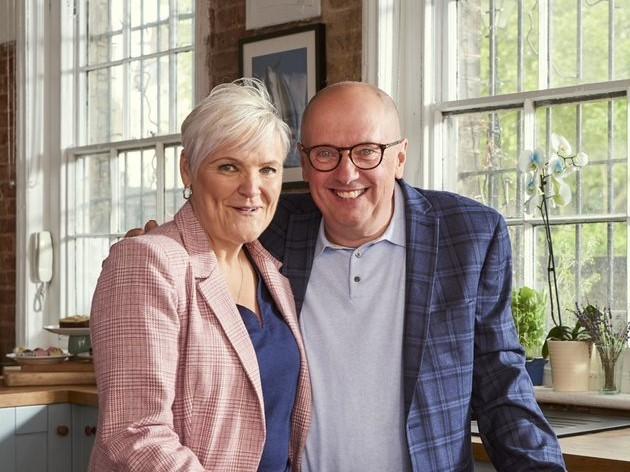More funding and support needed for younger people with dementia, says patient
Exclusive 'We just hope we can keep our home because finances now are a lot tighter' says Paul Hoskins who had to give up work after being diagnosed with Pick's disease

Younger people with dementia and those who give up work to support them need more funding, according to a man who developed an early onset form of the disease.
Paul Hoskins also called for more funds for research into it.
Three years ago, the 59-year-old was diagnosed with Pick’s disease, a type of dementia which affects the frontotemporal lobes of the brain. They control planning, speech and moods.
Accounting for one in 20 dementia cases, it is the second or third most common form of dementia among the roughly 42,300 people who were struck with disease before the age 65.
“My wife, Penny, noticed the first sign, that things weren’t right,” he told The Independent. “My language had changed, my behaviour had changed. I was 56 and I was still working at Gatwick Airport, once I’d been to the doctors he signed me off and said I couldn’t work.”
Portraits of people living with dementia around the world
Show all 8There are unique challenges for younger people with the disease. They are more likely to have a dependent family, fewer savings and may be unable to access services because of minimum age limits or distances.
"I stay in a care home which is in Horsham near where our home is,” Mr Hoskins said. “But we just hope we can keep our home because finances now are a lot tighter.”
Penny regularly cares for him and the family have sacrificed luxuries like a TV subscription Paul used to have to follow the cricket.
However Paul is optimistic about his circumstances and using his experiences to make a difference.
He can remember what happened to him over the past few weeks, as well as big life events like renewing his vows with Penny, but his condition means he can lose his train of thought and has medication to regulate his moods which means he couldn't work or drive.
Some of his care funding goes towards taxis to attend weekly clubs where people with dementia can play table tennis - Paul's forte - or badminton.
While he is full of praise for these clubs, he admits it can be frustrating because he is often the youngest person attending them and, sometimes his fellow participants may be less physically able as well.
“I don’t think there’s enough understanding of younger dementia, or funding,” Mr Hoskins said. "There’s lots of clubs for the elderly, but for younger people with Pick’s disease there’s two in the country - they’re specialist places. “If I went anywhere like that I’d have to move away and I wouldn’t see my family. I’ve got to see my family, they’re the critical part of my life.”
He recently teamed up with Dr Foster actress Suranne Jones, whose mother had early onset vascular dementia, to promote the Alzheimer’s Society’s Cupcake Day on Thursday 13 June.
The fundraising campaign highlights that dementia is the leading cause of death in the UK and six people will be diagnosed in the time it takes to bake a batch of cakes.
The charity has been lobbying to raise awareness of the needs of young dementia sufferers among doctors and politicians.
Paul said funding research into these early forms of dementia is key as there is currently no treatment which can slow or cure the disease.
To encourage this, he said he gives talks to aspiring medical students about his condition in the hope of inspiring the next generation of researchers.
“Eventually I will have loss of speech, then you get loss of swallowing, my mobility will be far worse,” he said. “But I don’t necessarily want to think about it, I’d rather get on and keep going”.
Subscribe to Independent Premium to bookmark this article
Want to bookmark your favourite articles and stories to read or reference later? Start your Independent Premium subscription today.

Join our commenting forum
Join thought-provoking conversations, follow other Independent readers and see their replies